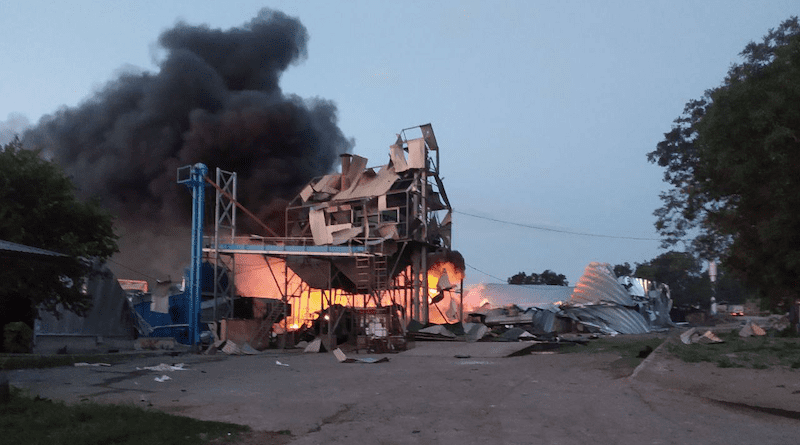UN Concerned About Spike In Russian Attacks On Odesa, Other Ukrainian Cities
By IDN
By Caroline Mwanga
The Ukrainian Black Sea port city of Odesa has become a frequent target of missile and drone attacks in recent days and weeks, with deadly consequences, a senior United Nations official told the Security Council today, as delegates condemned Moscow’s intensified attacks against Ukrainian cities.
These include a lethal missile strike on 6 March—while Ukrainian President Volodymyr Zelenskyy and Greek Prime Minister Kyriakos Mitsotakis were visiting—which reportedly occurred a few hundred metres from the two leader’s convoy. In another reported incident last weekend, Moscow’s strikes hit a high-rise residential building, leaving 12 dead, including five children.
“Odesa is far from being the only Ukrainian city under constant fire,” said Khaled Khiari, Assistant Secretary-General for Middle East, Asia and the Pacific in the Departments of Political and Peacebuilding Affairs and Peace Operations, detailing reported civilian casualties in Kharkiv, Donetsk, Sumy and Zaporizhzhia.
Expressing concern over reports that the fighting is spreading to new residential areas in eastern Ukraine, he observed: “Throughout this war, fighting that came to Ukrainian villages, towns and cities led to complete or near-complete destruction at the hands of Russian forces.”
“This horrific pattern must not be perpetuated,” he declared, adding that the States’ territorial integrity and political independence are fundamental principles of the Charter of the United Nations and “at the heart of our multilateral order”. Reports of Moscow’s plans to organize and hold its March presidential elections in the Ukrainian territories currently under its control are “deeply disturbing”, he said.
Attempted illegal annexation of Ukrainian territory has no validity under international law, Mr Khiari stressed.
Lisa Doughten, Director of Financing and Partnerships, Office for the Coordination of Humanitarian Affairs (OCHA)—speaking on behalf of Under-Secretary-General for Humanitarian Affairs and Emergency Relief Coordinator Martin Griffiths—said that the latest wave of escalatory attacks in Odesa, Kharkiv, Sumy and Donetsk regions over the past few days shows how the conflict continues to inflict immeasurable human suffering, death and destruction.
The recent attacks have left many other civilians without electricity, heat and water and rendered thousands homeless and in need of humanitarian assistance.
Noting the lack of humanitarian access to Russian-occupied cities and towns in Donetska, Khersonska, Luhanska and Zaporizka oblasts, she voiced deep concern over the fate of civilians in these territories who cannot be reached at any adequate scale. “The consequences for an estimated 1.5 million people in need of life-saving assistance there are unthinkable,” she added.
Donors have provided 11 per cent of the $3.1 billion required for the 2024 Ukraine humanitarian needs and response plan. She said that more financial support is urgently needed to sustain operations, adding that the UN and its partners have adapted operations to stay and deliver critical supplies to nearly 13,000 war-affected residents in the front-line communities.
Marking International Women’s Day on 8 March, she highlighted the conflict’s impact on women and girls, particularly the increase in gender-based violence—“a shocking hallmark of this war”. A lack of sufficient resources to sustain and expand a network of medical and social care services means many of the 2.5 million people anticipated to be subjected to gender-based violence in the coming year—notably acute for displaced women and girls near the frontlines—will not have access to the services they need.

